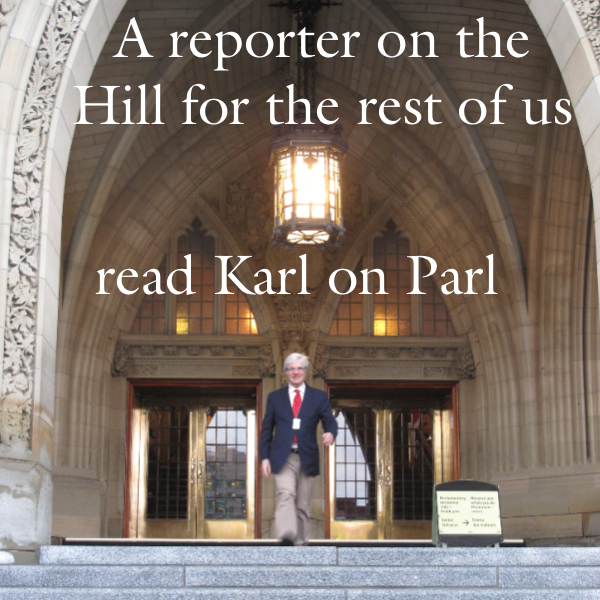Stephen Harper’s government spends between $50 million and $60 million on political staff for its 39 cabinet ministers.
That fact is revealed in a study by Carleton University instructor and former political staffer Jennifer Robson, reported in Monday’s Hill Times.
It is important to note that we’re talking about political staff here — or to use the technical, Canadian term, “exempt staff” — not civil servants.
In Great Britain they call such staffers “special advisers” and they spend about $8 million per year on them for the entire British cabinet.
That’s how much Harper spends on the exempt staff for his one office alone.
This research should be noteworthy against the background of the outrage Conservatives and Liberals have expressed at the Official Opposition NDP housing some of its Parliamentary political staff outside of Ottawa. Nobody has accused the Official Opposition of inflating the cost of political staff through that measure.
The Carleton researcher reports that it is not clear what Harper and his colleagues’ $50 million to $60 million worth of partisan help actually does.
One thing exempt staff are not supposed to do is directly supervise civil servants.
However, in Harper’s regime political staff may technically respect that rule – but they manage to get their hands on a lot of what civil servants do.
For instance, one of the tasks assigned to the Prime Minister’s own team of high-priced political staff is to ride herd on all Government of Canada communication.
All governments consider message control to be one of the keys to survival, if not success. Few, however, have been as obsessive about tightly controlling what the government says as Harper’s regime.
Knowing that, the folks who work on the civil service side of the federal government’s communications apparatus have devised work-arounds and tactics to assure that the Prime Minister’s Office gets its say on just about everything they produce.
When those civil servants draft news releases for their departments, for instance, they do not simply send them to their ministers’ offices and leave it to them to consult higher up the food chain.
No — very often, the professional, public service communicators will routinely (to use the jargon of the trade) “bootleg” copies of their work to the Prime Minister’s Office at the same time as they send it to their ministers.
The public servants know where the real power lies. And they are professional enough to want to get their releases out in a timely way — before the events they might be announcing actually happen, for instance.
The bloated size of the Cabinet’s exempt staff is not new, and did not begin with Harper. It started to grow more than half a century ago. What Robson’s research does reveal though is a correlation between how politically influential ministers are and the amount of money they spend on exempt staff.
Employment Minister Jason Kenney is Chair of the Cabinet’s powerful Operations Committee and a member of the inner sanctum Priorities and Planning Committee, the only one chaired by the Prime Minister. Kenney is also one of the biggest spenders on exempt staff. The most recent annual figure quoted by Robson is in excess of two million dollars.
Other ministers, who lead equally important departments, spend much less on their exempt staff. This led the Carleton researcher to conclude that politics and political influence trump managerial and policy responsibility in the allocation of resources for ministerial staff.
Always putting partisan politics first and foremost is another of the unmistakable hallmarks of the Harper regime.
“Seek ye first the political kingdom and all other things shall be added unto you.”
Those were the words of Kwame Nkrumah, the first leader of a newly independent Ghana. He was talking about how political independence for colonized countries was the first step toward human rights and economic justice.
Harper seems to have taken Nkrumah’s dictum to heart, though to the Prime Minister it has a rather different meaning.
—————
Correction
Please note the following correction.
The sentence: “Robson observes, however, that there are disquieting references in government documents to exempt staffers ‘supervising civil servants'” has been replaced by the following:
“One thing exempt staff are not supposed to do is directly supervise civil servants. However, in Harper’s regime, political staff may technically respect that rule – but they manage to get their hands on a lot of what civil servants do.”



